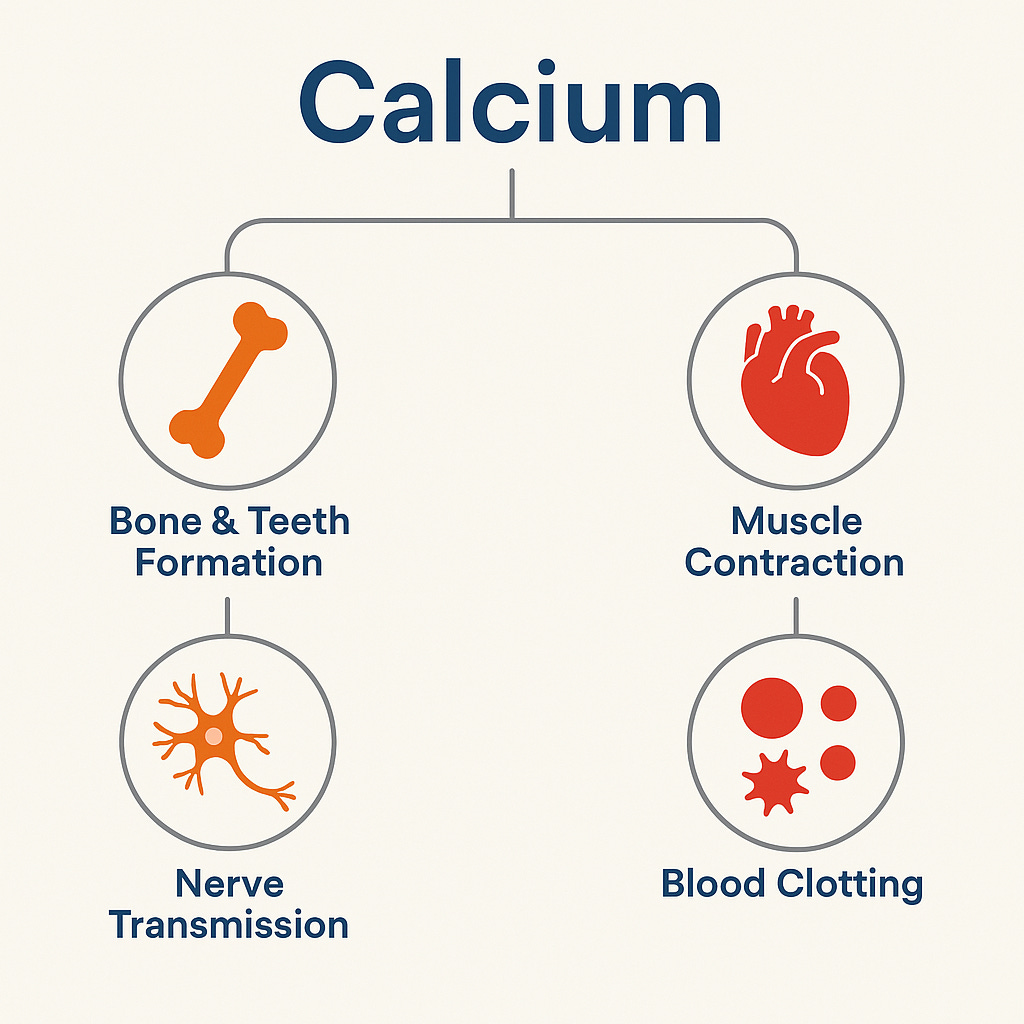Calcium
Calcium, and underrated macro mineral (needed in larger amounts 100mg/day than micro minerals) , often times gets attributed to thrombosis, calcium can build up in your arteries in a surplus, especially without the correct macro mineral balance of magnesium, vitamin D3 and K2. So what do we not know about calcium? Calcium is like sodium, potassium, magnesium, phosphorus, sulfur and chloride an electrolyte. With that being said, an electrolyte is a macro mineral (like sediments of a rock) that hold an electrical charge, within the capability of this positive or negative charge is the adherence to affecting the nervous system, in regulating action potentials, or enabling muscular contraction in both smooth muscle and striated muscle. Calcium, because of it’s properties as an electrolyte is very much an integral part of heart contractility, muscular contraction in skeletal muscle as well, and as a nervous system modulator.
Calcium’s Role in the Human Body (Key Functions)
Bone & Teeth Formation
~99% of calcium is stored in bones and teeth as calcium phosphate.
Essential for bone density and prevention of osteoporosis.
Muscle Contraction
Calcium enables actin-myosin interaction, which is how muscles contract — including the heart.
Nerve Transmission
Needed for neurotransmitter release at synapses. Without calcium, nerve signals can’t travel properly.
Blood Clotting
Acts as a cofactor in multiple steps of the coagulation cascade (hemostasis) (e.g., activating clotting factors).
Cell Signaling
Plays a critical role in second messenger systems, regulating processes like hormone release and gene expression.
Enzyme Activation
Activates several enzymes involved in metabolism and cell communication.
Now that you know what it does, the question must be asked, what do we do about this? Do I need to take in foods high in dietary calcium to meet my needs? Or should I supplement calcium at a high dosage? What is the most bioavailable pathway? This, it’s a bit overwhelming, I get it. The dietary needs range in account to age, gender, physical goals, and prior/familial medical history, proceed with caution.
0–6 months M:200 F:200
7–12 months M:260 F:260
1–3 years M:700 F:1,000
9–18 years (adolescents) M:1,300 F:1,300
19–50 years (adults) M:1,000 F:1,000
51–70 years M:1,000 F:1,200
71+ years M:1,200 F:1,200
Pregnant/Breastfeeding (≤18 years) — F:1,300
Pregnant/Breastfeeding (19–50 years) — F:1,000
Take these recommendations with a grain of salt.
Remember when supplementing calcium, pair with magnesium (glycinate or threonate these are the most bioavailable sources), vitamin D3 and K2, for a synergistic affect and arterial protection. And careful, if you’re a caffeine lover, caffeine flushes out those essential electrolytes that we need for every day function, but that’s a story for another time. Thank you for reading!

